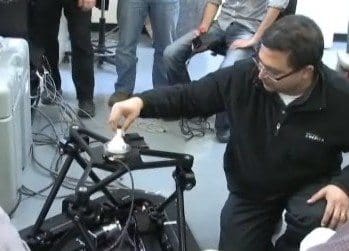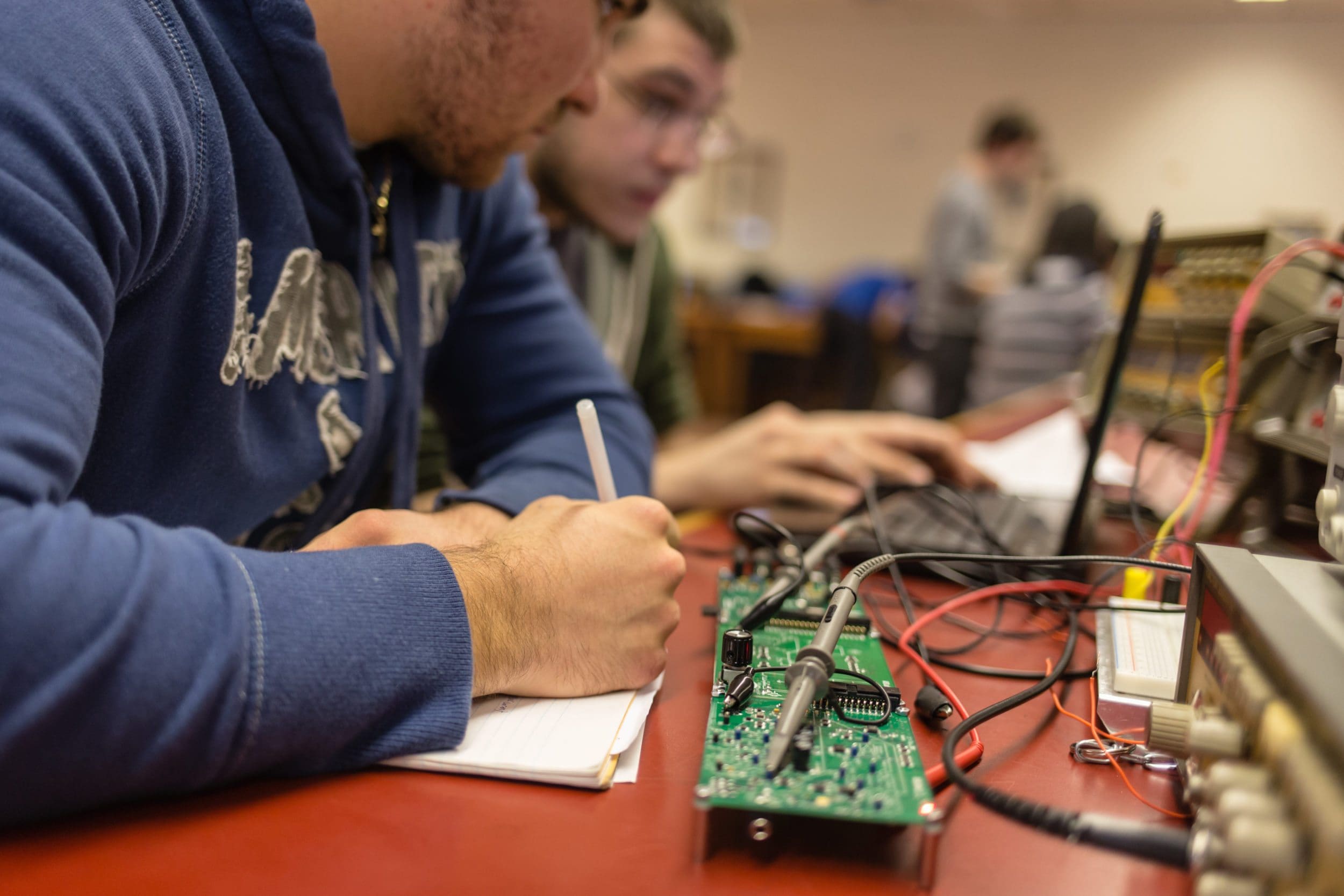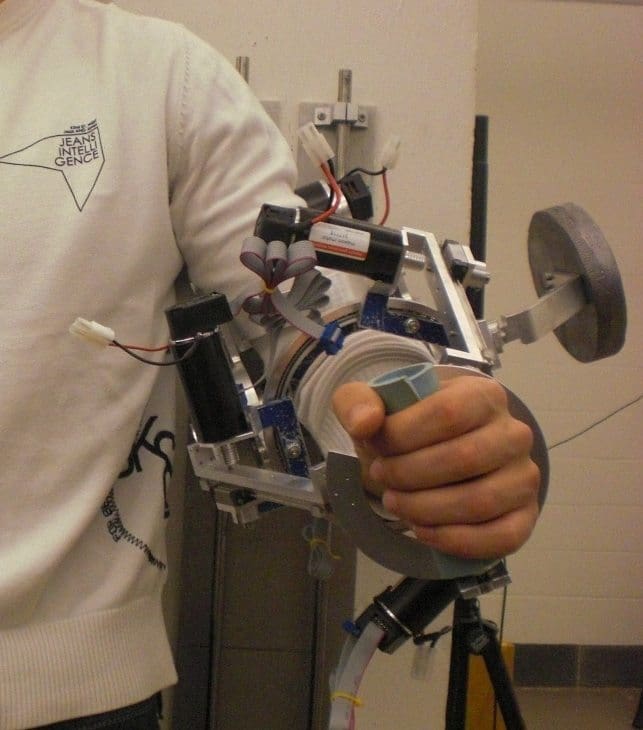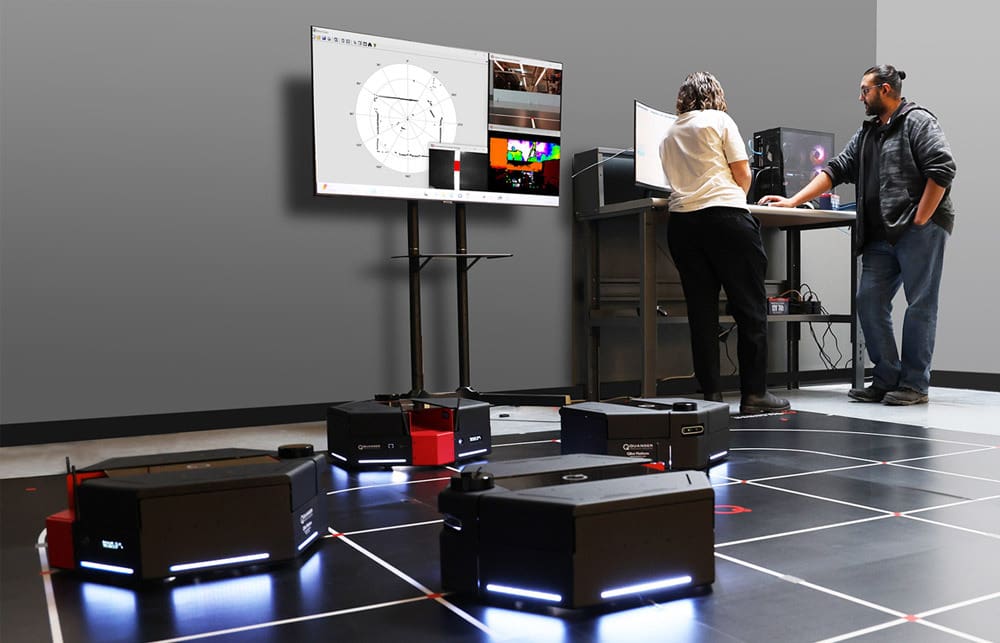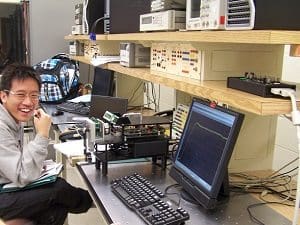
Dr. Mark Spong is the celebrated Dean at the University of Texas at Dallas School of Engineering & Computer Science. Throughout his career, Dr. Spong has recognized the increasing importance of teaching control concepts with hands-on experiments.
The theory presented in textbooks is vital, but there are many, “factors that impact real-time control system design that cannot be adequately taught from textbooks and require hands-on laboratory experience to master,” comments Dr. Spong. However, the exciting possibilities of hands-on experiments outweigh the lower costs of textbooks.
Challenge
An easier way to teach and learn controls
Earlier in his career, at the University of Illinois at Urbana-Champaign, Dr. Spong wanted to “build a modular system that would incorporate the pendubot, reaction wheel pendulum and couple of other experiments like the rotary pendulum. Basically the idea was to put all that together into one compact package that people could carry into their classroom and lab.” It also occurred to Dr. Spong that such a system could make a significant difference to engineering students everywhere. But how could he get it to market?
Solution
MechKit - invented by Dr. Spong, produced by Quanser
Together with Dan Block, Lab Manager at the University of Illinois at Urbana-Champaign, Dr. Spong invented the Mechatronics Control Kit – or MechKit. The device is multi-purpose, capable of providing hands-on real-life experience with several different experiments. Yet it is also modular, compact and portable: a sort of engineering professor’s Swiss Army knife. Calling it a “complete control lab in one system,” Dr. Spong summarizes its benefits just as succinctly. “It’s very cost-effective and simple for instructors to get hands-on experience for their students.”
And as for marketing the MechKit? Enter Quanser and the possibility of industrial partnership.
The team at Quanser is viewed by many as the bridge between industry and educators. In short, they love a unique challenge. So when the opportunity surfaced to take the MechKit invention global, they leaped at it.
Not only has Quanser taken it into production, the engineers on staff have made a few improvements over the years too. “The intention,” Dr. Jacob Apkarian, Quanser’s Chief Technology Officer says, “is to make this lab tool more effective for educators.”
Result
Affordable hands-on learning
The MechKit was an instant hit with Dr. Spong’s students in Illinois, teaching them control concepts faster and more profoundly. And as Dr. Spong envisioned, it helps other engineering students too. In just five years, Quanser has sold scores of MechKit units to universities all around the world. These include institutions in Germany, Kosovo, Turkey, India, Pakistan, China, Japan, Singapore, Brazil, Mexico, USA and Canada.
Such a variety of experiments in a single package encourages everything from experimentation and learning at the undergraduate level to advanced and groundbreaking post-graduate research.
And what of affordability?
The MechKit helps maximize the universities’ budgets because it is constantly in use. As control is taught in various engineering departments, the MechKit is an ideal candidate for the multi-departmental control labs, utilized by mechanical, electrical or process control engineering students. Given that round-the-clock attention from students, the team at Quanser made sure that the MechKit is robust to withstand the enthusiasm of motivated undergrads.
